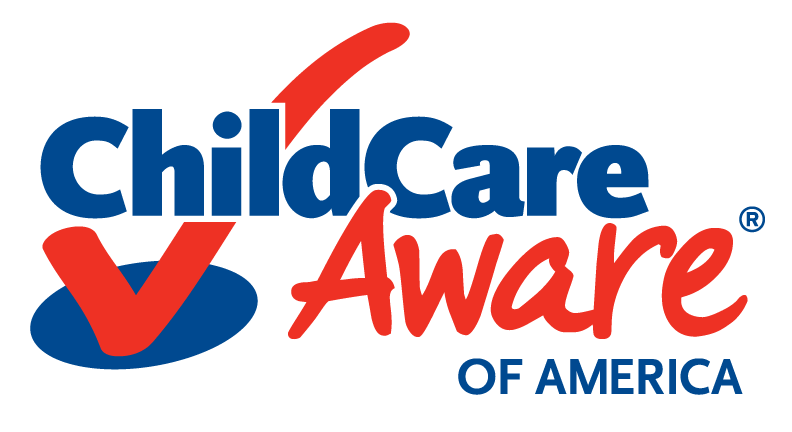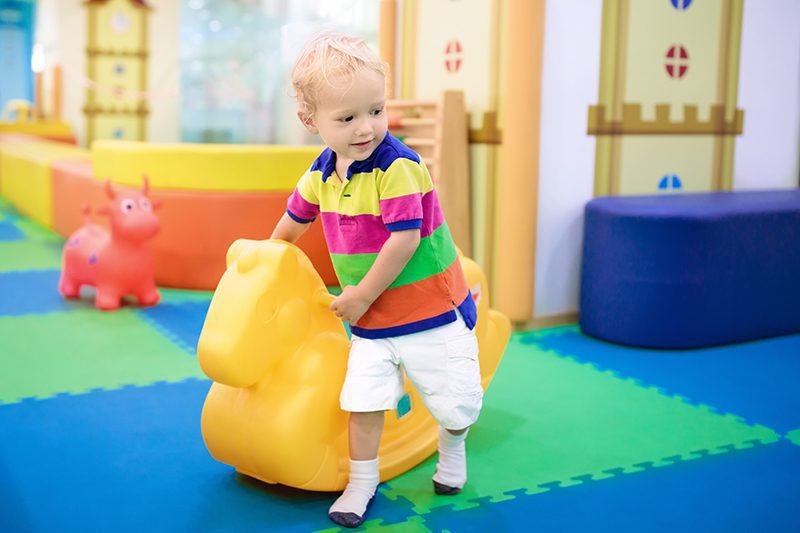Operating a Child Care Center: Program Practices
You can take steps towards providing a high quality early care and education environment for the children in your program. Putting thought and care into the following areas of your program can help you to enhance your program quality.
-

Developmentally Appropriate Practices (DAP)
When designing your child care program for quality, you will want to incorporate practices that are developmentally appropriate for the children in your care. Developmentally Appropriate Practices (DAP) means that you are using knowledge about how children learn and grow to design an appropriate learning environment and experiences for them. Your local Child Care Resource and Referral (CCR&R) agency can help you with training and resources to incorporate these practices into your child care program.
DAP Considerations -

Curriculum
Your curriculum is your plan or roadmap of what you want to teach and how you teach young children the skills they need to be prepared for kindergarten. Although there are a number of different curricula available on the market for you to purchase, make sure it includes a focus on each domain of development. Use this resource to help you think about choosing a developmentally appropriate curriculum.
Curriculum -

Family Engagement
Families are a key element in all child care programs. Building meaningful relationships with families shows you are a partner in their child’s development. Your local Child Care Resource and Referral (CCR&R) agency can help you develop and design family engagement opportunities for the families in your child care program.
Family Engagement
Pandemic Considerations: As an added safety measure against COVID-19, child care programs have been discouraged from allowing visitors into their facilities for the duration of the pandemic. Because of this, family engagement may be more difficult. There are a variety of virtual options for engagement, however. Consider:
- Offering virtual tours and conferences by using video calls, photos, or videos
- Sharing details, pictures, and videos of your daily activities on a social media page or a classroom app
- Having parents read to the group on a video call or recording
- Using social media to display children’s art work or projects
- Sharing Vroom tips with parents to help them see how you interact with children each day and to encourage them to make everyday moments into brain-building moments at home as well
-

Caregiver-Child Interactions
One of the most important features of your child care program will be how you and your staff interact with the children in your care. Use the resource below to think about how you and your staff can increase the quality of interactions with the children in your care.
Caregiver-Child Interactions
Pandemic Consideration: Children may be feeling stress and uncertainty during this time. Learn about helping children cope with traumatic events.
-

Indoor Environment
Designing a high-quality indoor learning environment for children will require you to have a number of different learning centers and experiences for children of different ages and abilities. You also will want to think about your room layout and design and where you will put different learning centers. Your local Child Care Resource and Referral (CCR&R) agency can help you design a quality learning environment.
Indoor Environment
Pandemic Considerations: Think about how you might be able to use unusual spaces to allow for more distance between children and activities. For example, do you have offices, a cafeteria, multipurpose rooms, or other useable space that could give children and activities a wider area for play and learning? Are you able to safely supervise and care for children in these areas? Will you need licensing approval or another type of inspection (ex. fire marshall) to be able to use these areas for child care?
If you previously served meals and snacks in a communal cafeteria, it is recommended to instead have meal and snack times in the classroom to avoid mixing groups of children.
-

Outdoor Environment
Designing a high-quality outdoor environment and experiences for children should include equipment of the right size and type for the children you serve. There should be plenty of space for children to move about and experience fresh air. There are a number of safety considerations you will need to think about in order to provide a quality outdoor learning environment. Many of these practices may be required by your state licensing agency.
Outdoor Environment
Pandemic Considerations: During the pandemic, you may want to prepare to spend more time outdoors. This can give children more space to play and explore. Think about how to do this safely. Is your outdoor space suitable for spending longer periods of time outdoors? Will you need additional sunscreen or insect spray for the children? How can you make sure that children stay hydrated? Do you have ways to stay cool on warm days and warm on cold days? Will you be able to sanitize your outdoor play equipment between uses?
Child care centers may also develop a staggered schedule for outdoor time to prevent mixing groups of children.
For the best results, be sure to download and save the resources provided above. Doing so will allow you to complete the forms from your computer or mobile device.
These resources and more are also available in our Child Care Center Resources E-Book.








